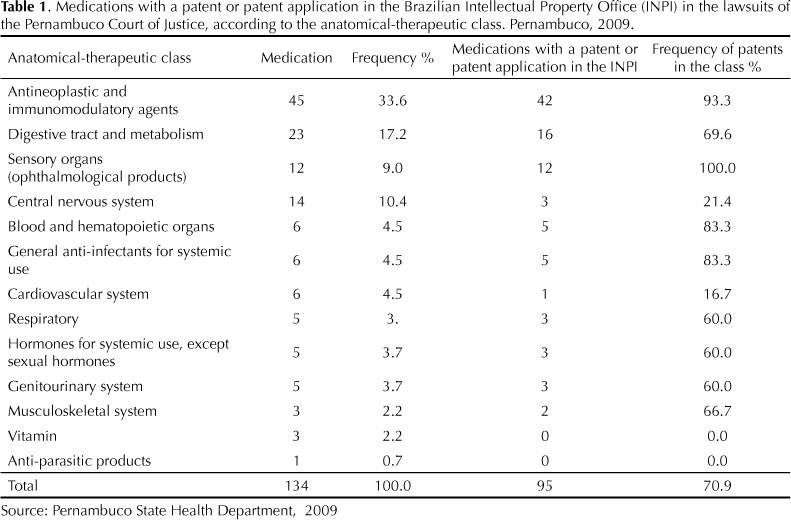OBJECTIVE: To analyze decisions from the legal system concerning the population's access to medicines within the Brazilian Public Health System through judicial channels, with regard to decision-making criteria and possible political and economic pressure. METHODS: This was a descriptive retrospective study on documents with a quantitative and qualitative approach. Data were gathered from the State of Pernambuco Superintendency for Pharmaceutical Care, and the data sources used were 105 lawsuits and administrative reports between January and June 2009. It was ascertained which medications have a patent or patent request in the database of the Brazilian Patent Office (INPI), in order to identify the frequency with which patents feature in lawsuits. The data obtained were classified according to Anatomical and Therapeutic Chemical System. To analyze the judicial decisions, the theory of autopoietic social systems was used. RESULTS: There were lawsuits involving 134 medications, with an estimated value of R$ 4.5 million for attending the treatments requested. 70.9% of the medications had a patent or a patent request and they were concentrated in three therapeutic classes: antineoplastic and immunomodulating agents; digestive tract and metabolism; and sensory organs. Six central ideas within judges' decision-making criteria were identified (the federal constitution and medical prescriptions), along with pressure between the legal, economic and political systems concerning access to medications. CONCLUSIONS: The analysis on judicial decisions based on the theory of autopoietic social systems made it possible to identify mutual stimulation (dependency) between the legal system and other social systems in relation to the issue of citizens' access to medications. This dependency was represented by the federal constitution and intellectual property. The federal constitution and medical prescription were identified as decision-making criteria in lawsuits. Intellectual property represented possible political and economic pressure, especially in cases of launching medications into the market.
Pharmaceutical Services; Judicial Decisions; Intellectual Property of Pharmaceutic Products and Process; Equity in Access; Health Law




